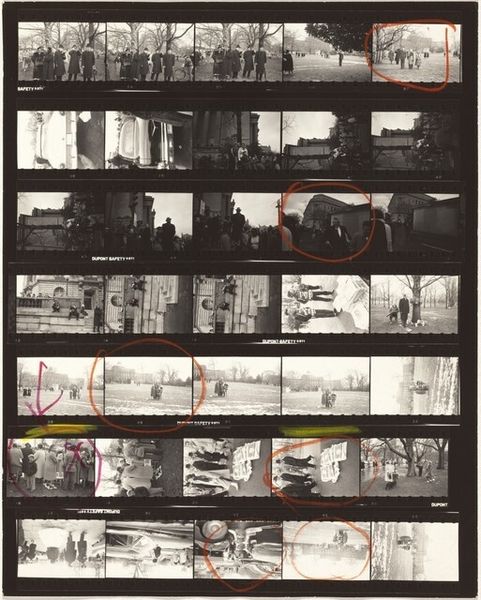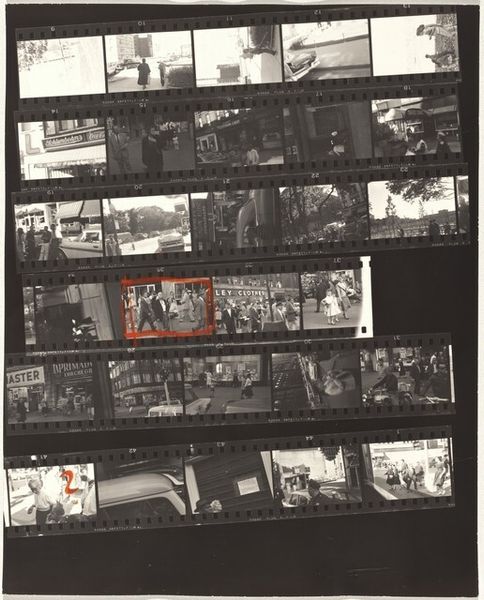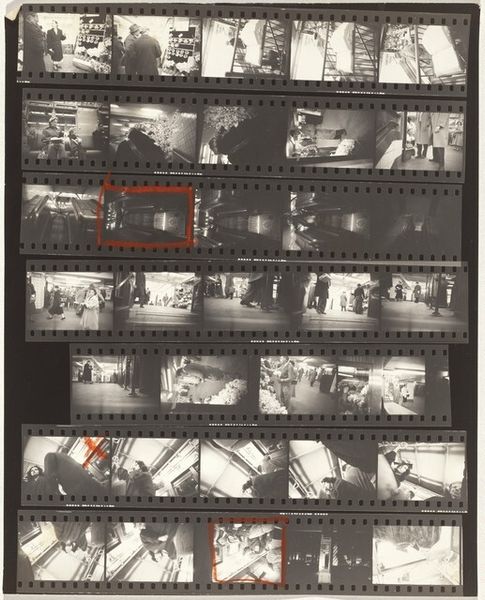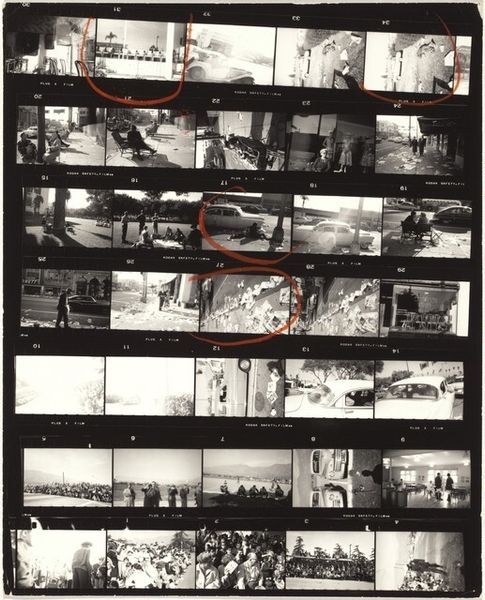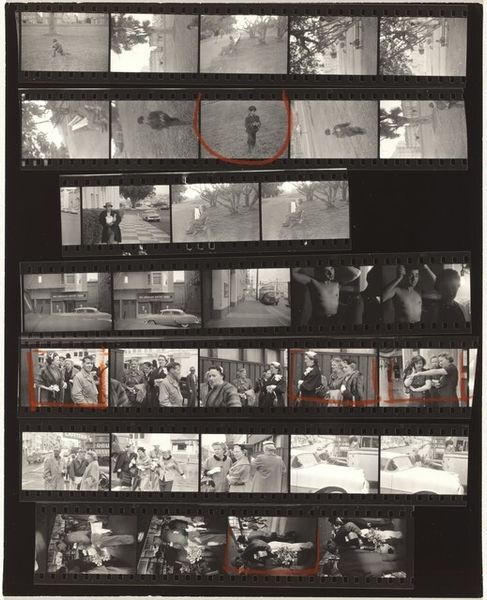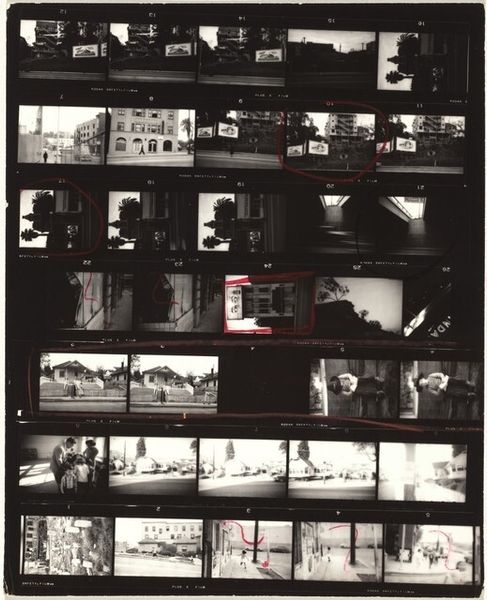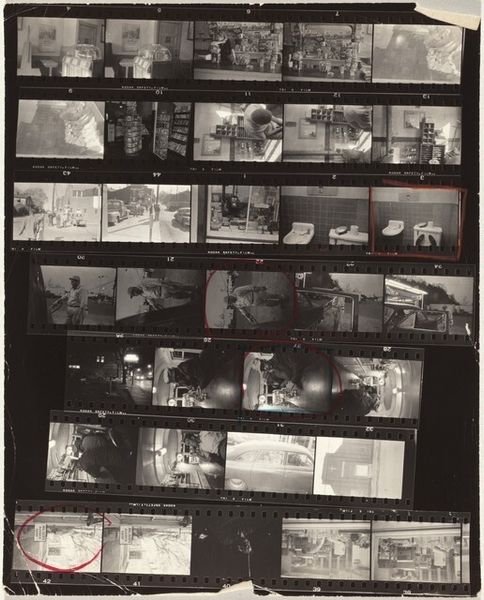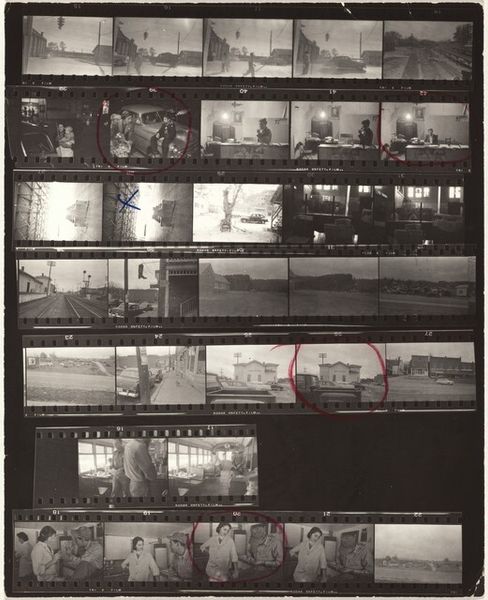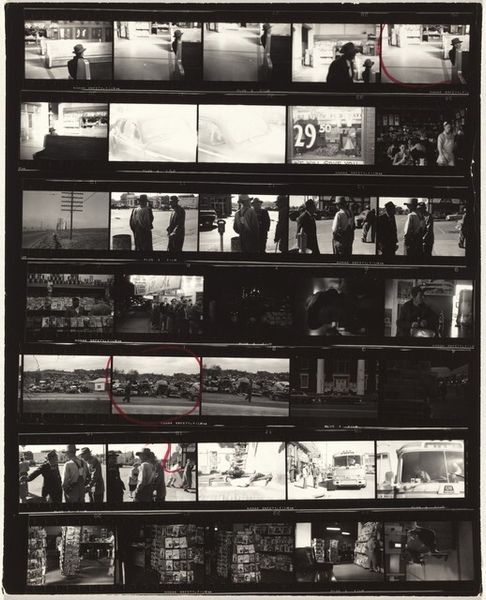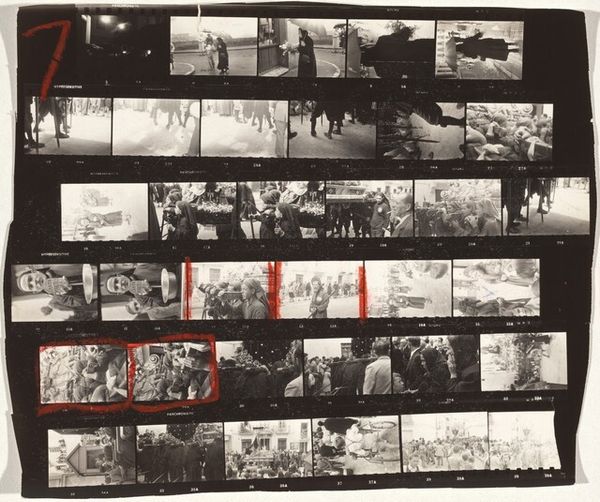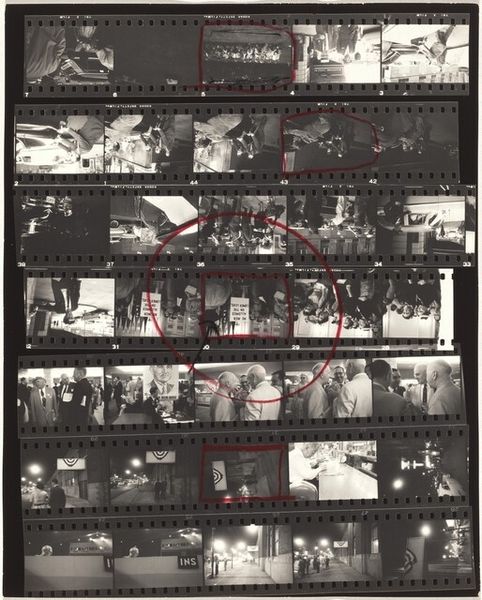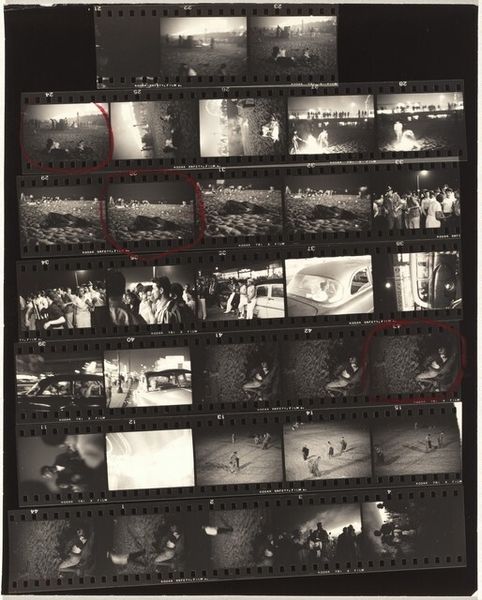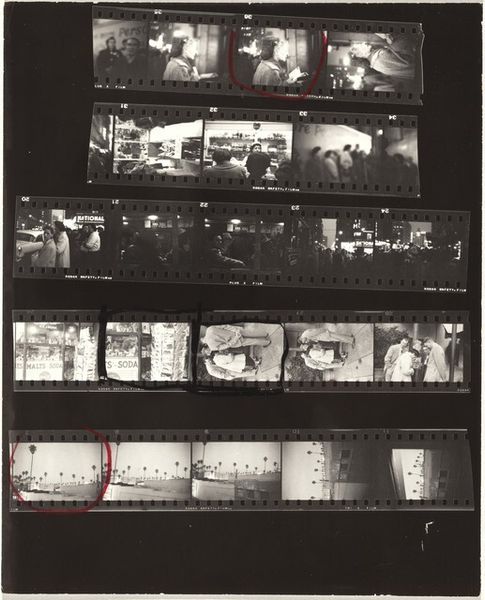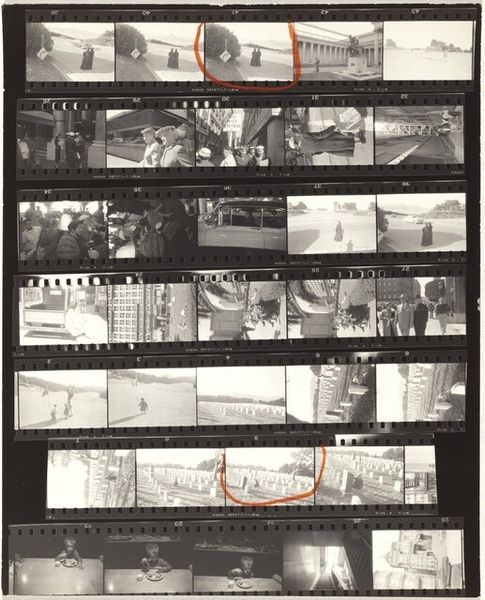
photography, gelatin-silver-print
#
portrait
#
abstract-expressionism
#
film photography
#
landscape
#
street-photography
#
photography
#
gelatin-silver-print
#
monochrome photography
#
monochrome
Dimensions: overall: 25.4 x 20.5 cm (10 x 8 1/16 in.)
Copyright: National Gallery of Art: CC0 1.0
Curator: We're looking at Robert Frank's gelatin silver print, "Guggenheim 423--Los Angeles," created between 1955 and 1956. Editor: It feels…like a disjointed memory. Snippets of places, people, a story struggling to be told. It's raw and restless. Curator: Exactly. Frank presents a contact sheet—a collection of images offering insight into his compositional thought process. Notice how he does not crop into individual shots, retaining the image as film roll documentation. This is critical. Editor: Like seeing the artist’s sketchpad, right? I get glimpses, almost subliminal hints: A car, street scenes… a stuffy art opening, perhaps? There is definitely a dark car with the door opened. I like the contrast, that little touch of transgression of being transported to an odd memory. Curator: Precisely. These sequencing, the dark car specifically, establishes a tension. Frank plays with light and shadow to draw attention to formal elements – shape, texture, tonality. Also consider his strategic use of focus and blur as both documentation and the artist's intent. Editor: There's a real sense of fragmentation too, which to me evokes the disorienting nature of urban life and that feeling of being an outsider looking in. Curator: Precisely. There is no "outside," in that context. Rather the experience becomes fully internal as the film roll serves as an immediate memory space that the observer has intimate access to as opposed to being a document. The Guggenheim becomes another point, not the "point." Editor: And this rawness gives the work such a human quality, doesn't it? You almost feel like you’re violating someone's privacy peering into these imperfect visions, especially with how they resist being cropped and "perfected." Curator: This rejection of perfection is intentional, indeed. Through fragmentation, Frank challenges the established standards of photographic representation. There is an immediacy, perhaps even an indifference, which is in-keeping with Abstract Expressionism. Editor: Thinking about it more, maybe this *is* Los Angeles. Beautiful, yes, but also fragmented and impersonal. Like a series of fleeting encounters, almost. Curator: I would agree. These "encounters" culminate as evidence in what amounts to be an artifact of social tension. Editor: So, looking at this as a whole, what at first seems chaotic really unfolds as a beautifully constructed…reflection. Curator: Precisely. A narrative, or, as I would put it, an anti-narrative. Either is valid and equally demonstrable.
Comments
No comments
Be the first to comment and join the conversation on the ultimate creative platform.
